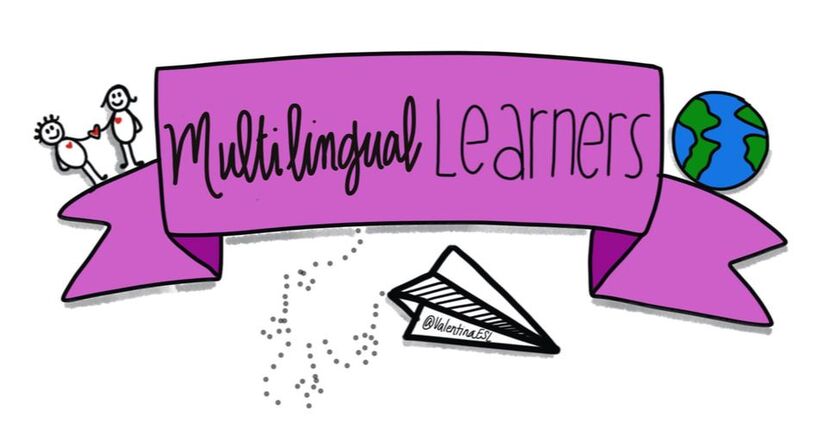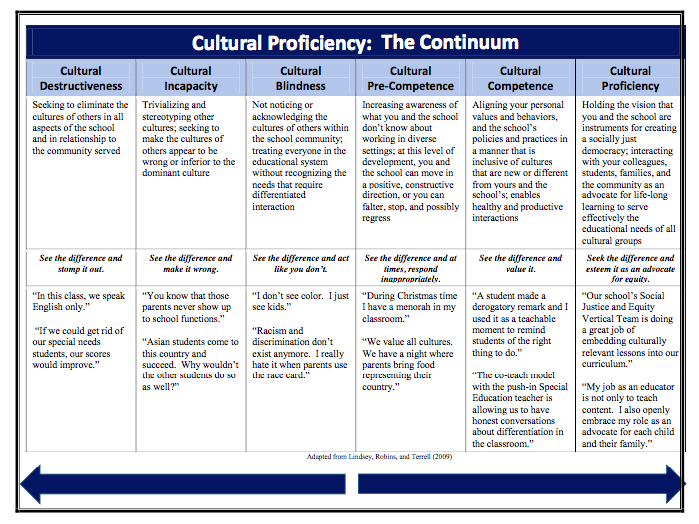How to handle resistance from teachersThis topic has been rolling around in my mind for quite some time. I hear about the problem from EL teachers around the nation. Not to mention that as an EL teacher myself, I encountered this struggle too many times.
I remember vividly having a meeting with a gen ed teacher. One of our students was struggling in her class. He hadn't been in the US very long, only a bit over a year. So I asked that we meet to discuss how I could help to plan with her and accommodate instruction. I was met with resistance from the moment I walked in the room. The teacher explained that she felt that this student (along with all the other ELs) should not have anything different than everyone in the class. She explained that she has heard him speak and that he is capable of doing the work. She went on to tell me that the grades were reflective of defiance and not ability. Ouch. I listened. Quietly. But it was difficult. And then when she finished, I carefully shared with her his language levels in each domain explaining the difference between social and academic language. We took a look at the types of accommodations that were appropriate for a learner at his language proficiency. In the end, it took a while for this teacher to come around. It took support, scaffolding, and leading the teacher to find the best way to make progress with the student. And to begin with, rebuilding their relationship came first. This student needed to know that the teacher genuinely cared about his education and growth. So what can you do if you are faced with a similar dilemma? Here are a few tips I've learned along the way: 1. Build a caring relationship with the teacher. The teacher will not trust you unless a solid foundation is there. Begin with casual conversations that have nothing to do with school. Get to know the teacher beyond work. Ask personal questions (but not too personal). Then start talking about content. Discuss the learning that's happening in the classroom. Finally talk about specific students, how they are doing, what they need to succeed, etc. This will not happen in one day, not in a week...it will take time. 2. Scaffold the teacher's learning. Model for the teacher (if you can) what you would like for him/her to do with students. If the teacher would benefit from understanding language development, scaffold that instruction for them. Introduce it in small chunks or provide visuals. 3. Model lessons. The best professional development is learning from other educators or our peers. Model lessons for the teacher that highlight accommodations. If you are a co-teacher, then this will work out great. If this is not possible, set up a time when the teacher can observe another educator to see a lesson. This is great because it not only helps your teacher who is struggling but also builds capacity for the other teacher. 4. Suggest professional learning opportunities. When the teacher is open to learning more, suggest professional development that will help to build on their practice. In-district PD, out of district PD, online learning, professional books, or twitter chats, are excellent. Each teacher will have their own learning style. Some like face to face while others prefer to read on their own or learn on line. The good news is that there are many options available these days. Being culturally aware and responsive to our students' needs is critical to their success. The more we support them during their learning, the better they will perform when it counts. I have found it helpful to share this cultural proficiency continuum (shared with me at a training) with educators and let them self-reflect.
Kaitlin Rodrigues
4/8/2018 09:54:39 am
As a teacher of color and an ELL teacher, I see a loooot of cultural blindness and cultural incapacity in inner city schools with "white savior" teachers. They just want to treat my ELLs and other Latino students the same as their black students without acknowledging the vast amount of differences. I also hear assumptions about family involvement being blamed on culture, ignoring the fact that many of our families just work a lot.
valentina gonzalez
8/5/2018 01:29:27 pm
I know what you mean, Kaitlin. Thank you for reading and sharing. Hopefully we can make an impact. Comments are closed.
|
Categories
All
|



 RSS Feed
RSS Feed
